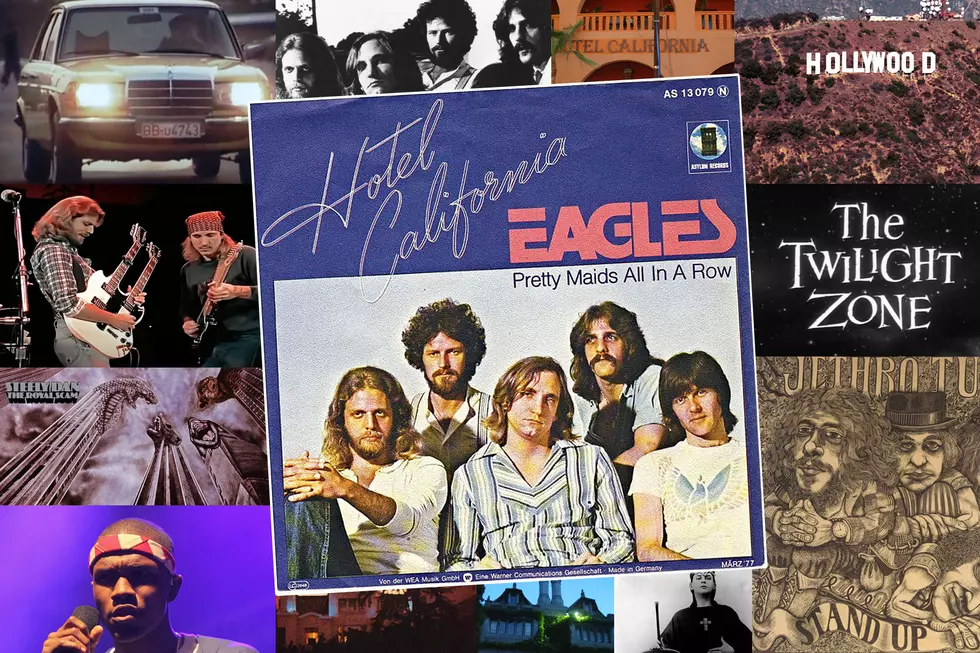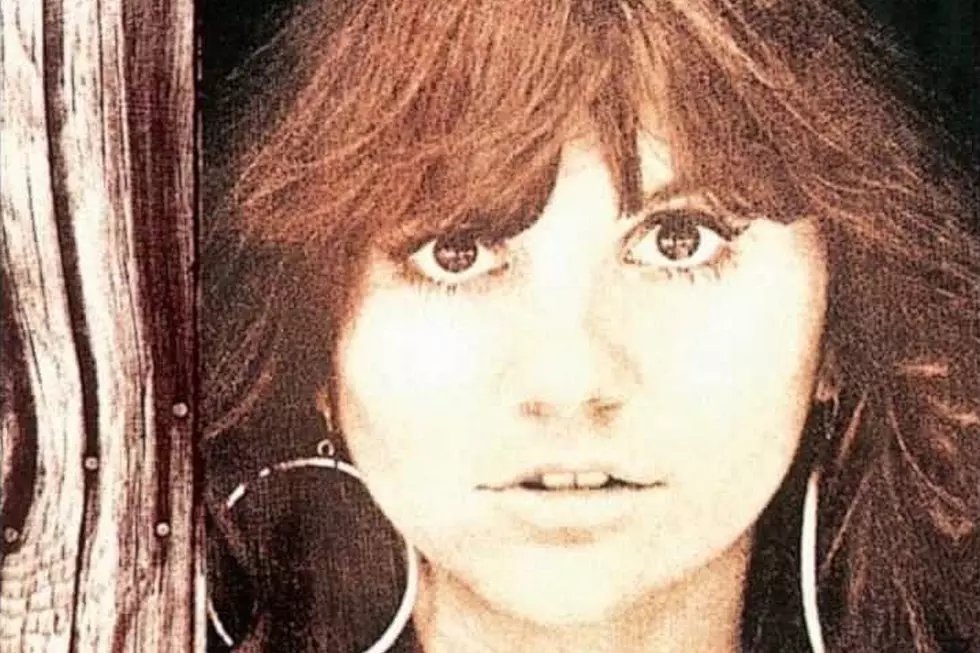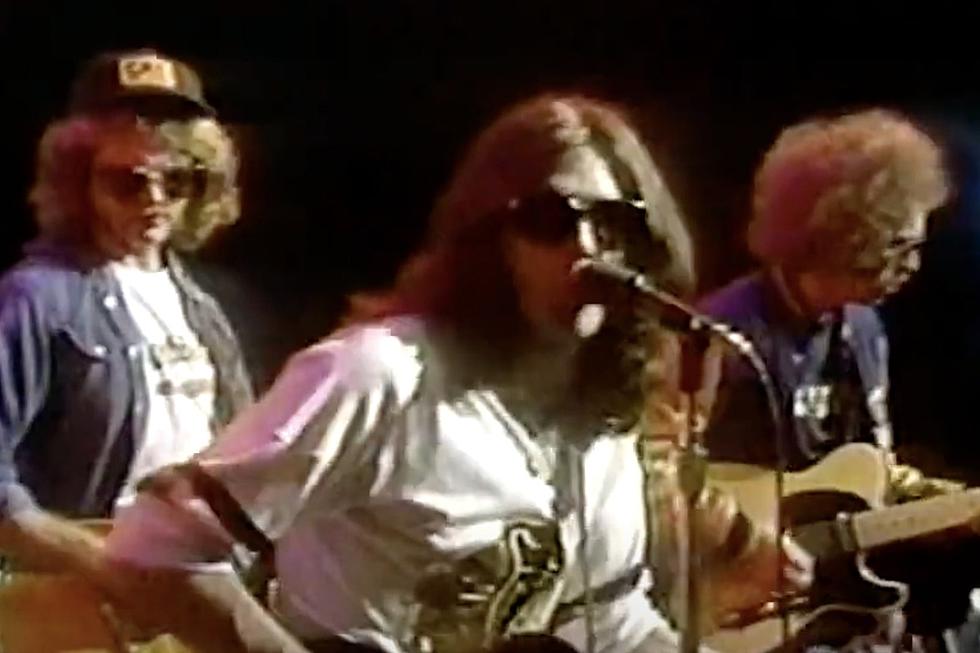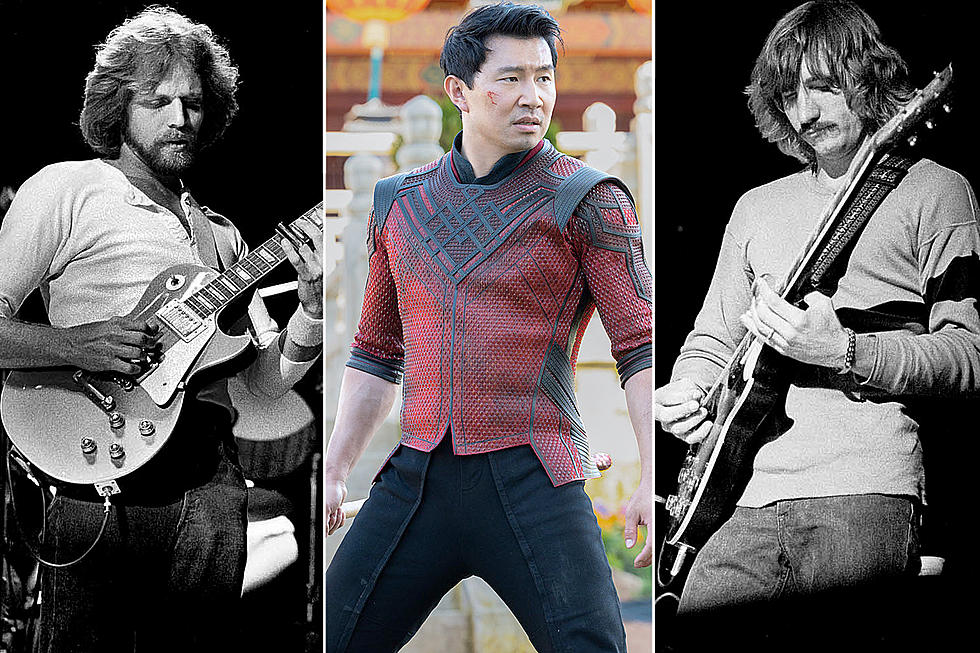
Eagles’ ‘Hotel California': 15 Facts You Might Not Know
Every song has a story. For Eagles' "Hotel California," that story stretches for miles. The title track from the band's hit 1976 album has come to be one of the most famous songs in rock history, but its tale goes deeper than you might think. From its original inspiration to the clever wordplay to its lasting cultural impact, below we outline 15 facts you might not know about Eagles' "Hotel California."
1. Don Felder did not expect the song to be a hit.
Knowing full well that most radio hits at the time clocked in around the three-minute mark, Don Felder thought there was no way "Hotel California" would take off. "'Hotel California' is six minutes, the intro is a minute long, it stops in the middle with no drums and you've got a two-minute guitar solo at the end," he said to MusicRadar in 2012. "It's the absolute wrong format for a single." He was mistaken.
Read More: Eagles’ Don Felder Thought "Hotel California" Would Flop
2. The working title was “Mexican Reggae.”
As Don Felder began to build the foundation of the song, he presented his progress to bandmate Don Henley. "Henley came back and said he really liked that song, and I think he kind of nicknamed it 'Mexican Reggae,'" Felder recalled on Uncle Joe Benson's Ultimate Classic Rock Nights radio show. "And I went, 'Oh, okay. 'Mexican Reggae.' That sounds good to me."
Read More: How Eagles' "Hotel California" Evolved From "Mexican Reggae"
3. Ian Anderson thought it sounded an awful lot like a Jethro Tull song.
The chord sequence on the Eagles' hit stood out to Jethro Tull's Ian Anderson, who noticed the "Hotel California" progression bore a remarkable resemblance to the one on "We Used to Know," a track from Jethro Tull's 1969 album Stand Up. He chalked it up to coincidence. "There's certainly no bitterness or any sense of plagiarism attached to my view on it," he said in an interview with Songfacts. "Although I do sometimes allude, in a joking way, to accepting it as a kind of tribute."
Read More: Did Jethro Tull Influence Eagles' "Hotel California"?
4. When it came time to record the song, Don Felder had forgotten what he’d written.
When the band sat down to record the song, Don Henley insisted the track be cut like the original demo. But having written it a year earlier, Felder could not recall what he had played. “I had left my original cassette in my studio in Los Angeles in Malibu," he told UCR. "So I had to call my housekeeper, have her go find the cassette, put it in a blaster, play it over the phone, so we could record it in the studio in Miami. Then I had to sit down and learn what I had just made up, note for note from the hip because Don wanted it just like the demo."
Read More: Don Felder Looks Back at 40 Years of "Hotel California": Exclusive Interview
5. The band wanted the song to "open like an episode of The Twilight Zone."
"We wanted to write a song just like it was a movie," cowriter Glenn Frey said to Cameron Crowe in 2003. "This guy is driving across the desert. He’s tired. He’s smokin’. Comes up over a hill, sees some lights, pulls in. First thing he sees is a really strange guy at the front door, welcoming him: 'Come on in.' Walks in, and then it becomes Fellini-esque — strange women, effeminate men, shadowy corridors, disembodied voices, debauchery, illusion ... weirdness."
6. A film adaptation of the song was proposed.
The cinematic quality of the song was not lost on movie producer Julia Phillips (Taxi Driver, Close Encounters of the Third Kind). "Don Henley seemed bright and responsive. I get kind of hung up on his ears, though, which stick out," she wrote in her memoir, You'll Never Eat Lunch in This Town Again. "A recalcitrant Glenn Frey does a lot of blow and seems angry about it. I don't know how to tell Irving [Azoff, the band's manager] but I don't think they're the Beatles. No star power." With neither party impressed with the other, the deal did not go down.
7. "Steely knives" is a reference to Steely Dan, who inspired Eagles to expand their lyrical horizons.
“One of the things that impressed us about Steely Dan was that they would say anything in their songs, and it didn’t have to necessarily make sense,” Glenn Frey said on the Ultimate Classic Rock Nights radio show. “They called it ‘joke sculpture.’ But it was also meant to be playful repartee." "Walter Becker’s girlfriend loved the Eagles, and she played them all the time," Frey told Cameron Crowe. "I think it drove him nuts. So, the story goes that they were having a fight one day, and that was the genesis of the line, 'Turn up the Eagles, the neighbors are listening' in 'Everything You Did,' from Steely Dan’s The Royal Scam album. During the writing of 'Hotel California,' we decided to volley."
Read More: Why Eagles Referenced Steely Dan in "Hotel California"
8. "Mercedes bends" is not a typo.
When the album was released, the songs' lyrics were included. Some fans assumed the misspelling of "Mercedes bends" was an error, but it was a purposeful play on words, emphasizing the woman's fanatical and "Tiffany-twisted" mind.
9. There are countless theories as to the architectural inspiration behind "Hotel California."
Eagles maintained the song was always an overarching metaphor for the fleeting materialism and wealth of California, but fans began to wonder if a real-life hotel had inspired the song. Various interpretations arose, according to Songfacts, ranging from local psychiatric hospitals to Aleister Crowley's mansion in Scotland to the Playboy Mansion in Los Angeles.
10. The photo on the album cover nearly got the band sued.
Intending to portray the album's title track, photographer John Kosh - who also had a hand in the covers of Abbey Road, Who's Next and Get Yer Ya-Ya's Out! - snapped a shot of the Beverly Hotel with a grainy tinge, such that the identity of the establishment wasn't immediately recognizable. "We were enamored with hotels," said Don Henley. "Hotels were a big part of our lives. The Beverly Hills Hotel had become something of a focal point — literally and symbolically. I’ve always been interested in architecture and the language of architecture, and, at that time, I was particularly keen on the mission style of early California. I thought there was a certain mystery and romance about it." When word finally got out which hotel it was, and as the album soared on the charts, the Beverly Hotel threatened Kosh with a cease-and-desist but then backed off after they noticed their bookings had tripled.
11. Eagles once filed a lawsuit against a hotel that called itself "Hotel California."
Though the Mexico-based Todos Santos hotel originally opened up as the Hotel California in 1950, nearly three decades before the song came out, it operated under several different names before going back to labeling itself Hotel California in 2001. The band filed and settled a lawsuit with the organization in 2018, citing that by playing Eagles songs and selling merchandise with their name, the hotel was falsely claiming to be the inspiration for the song, despite having no official connection to the group.
Read More: Eagles Settle Lawsuit With Real-Life Hotel California
12. Don Henley almost sued R&B singer Frank Ocean over unauthorized sampling of the song.
When Frank Ocean's released his debut mixtape, Nostalgia, Ultra, in 2011, an unapproved sample of "Hotel California" could be heard on one of the tracks, "American Wedding." "Don Henley is apparently intimidated by my rendition of 'Hotel California,'" Ocean wrote on his Tumblr blog. "He threatened to sue if I perform it again. I think it's fuckin' awesome." The sample was never cleared, and the song was never commercially released.
Read More: Don Henley and Rapper Face Off Over "Hotel California" Sampling
13. The term "Hotel California" has become synonymous with situations one seemingly cannot escape from.
Since its release, the song's theme of inevitable entrapment has resonated with other scenarios beyond California. For example, a mid-crisis financial reform bill put forth by Senators Chris Dodd and Bob Corker in 2010 included a "Hotel California provision" for Goldman Sachs and other banks that had converted to bank-holding companies. The provision meant even if these institutions were to get rid of their bank-holding companies, they would still be subject to Fed oversight or, in the words of the Eagles, they could check out any time they liked, but they could never leave. The term also appeared among writers and politicians as the U.K. began arranging to officially leave the EU in 2017, with some making the case for a "Hotel California model," in which Britain might formally check out out the union but remain financially involved. The same year, in the U.S., businessman William Browder invoked the lyric as he testified on Russian interference over American procedures before the Senate Judiciary Committee.
14. There are many covers and reworked versions of the song, including one with members of Styx and Foreigner.
In 2014, a revamped rendition of "Hotel California" featured Don Felder alongside Tommy Shaw of Styx and Kelly Hansen of Foreigner. “I didn’t want to do just a remake of the same version of ‘Hotel California,’" Felder said. "It had to be new and fresh.” Nancy Sinatra sung a fitting version for her 2002 album California Girl. Others translated the track into various language for covers: Cat Empire sang in French, Vama Veche in Romanian and Gipsy Kings in Spanish. While the song may have originally centered on California, its appeal is global.
Read More: Don Felder, Styx and Foreigner Share New Version of "Hotel California"
15. Don Felder and Joe Walsh both played solos on the song and then traded lines at the end.
The guitar work on "Hotel California " might be its crown jewel, but the feat was a undoubtedly a joint effort. Felder took the first verse of soloing, Walsh took the second and the pair interchanged parts for the end of the song, creating a memorable musical conversation that would land itself at No. 8 on Guitar World's list of the 50 Greatest Guitar Solos of All Time. "Don Felder and I were always very competitive, but it was good," Walsh recalled in 2016. "We really respected each other, and we pushed each other."
The Best (and Worst) Song From Every Eagles Album
More From 102.9 WBLM










